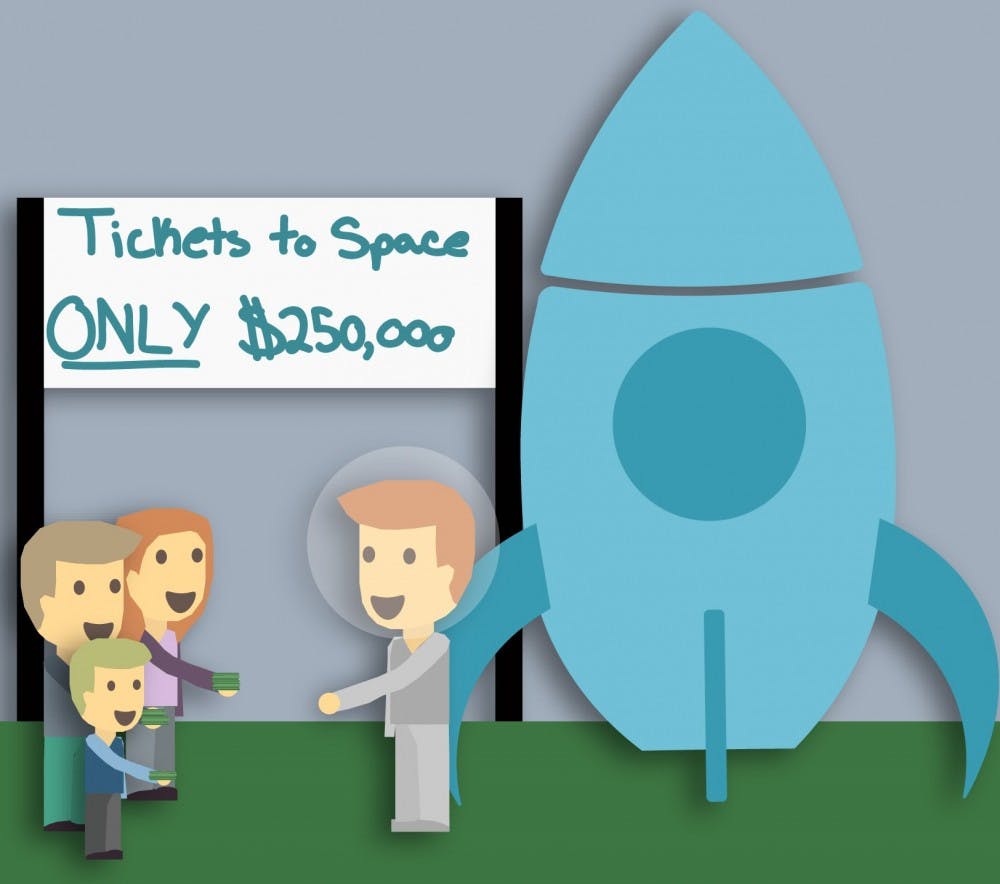So far it’s been an eventful year for both NASA and SpaceX, the private space exploration company founded by Elon Musk.
With the recent planetary discoveries, the potential change in the Hubble constant, and now SpaceX’s announcement of private space travel, there’s a lot to look forward to.
SpaceX is promoting privately funded space travel, and we think this may be our best bet to literally reach the stars.
Space is expensive. Therefore, we cannot rely on just the government to get our astronauts or plain space lovers into the cosmos. By funding these programs privately, we will get more work done.
When SpaceX announced its plan to send two people on a moon tour, the Indiana Daily Student asked professor Constantine Deliyannis what he thought about these plans. Deliyannis teaches in the astronomy and physics department at IU.
Deliyannis said he loved that NASA and SpaceX were working together to get more work done than they would accomplish separately.
He stressed the importance of recognizing our accomplishments so far and putting into perspective what we will need to do for the future.
It’s expensive to study space, and it’s even more expensive to travel and investigate space. Because of this, SpaceX felt it was more important to fund space exploration privately rather than publicly. The government has a capped budget for what it can give to space exploration. Right now, the government is giving NASA $19 billion of the $3.73 trillion budget for the fiscal year of 2017.
Out of this budget, a projected $8 billion is geared toward human exploration. While this may seem like a large number, only $3 billion of that is budgeted for actual exploration. The other $5 billion is budgeted for the research that goes into getting people into space.
Of course, that is still a large sum of money.
The two tourists traveling with SpaceX will pay at least $35 million for a ticket, which was the most recent price to send astronauts to the International Space Station. NASA is paying $80 million per astronaut for rover missions on the moon.
Private spaceflight will one day become its own industry because of the steps SpaceX is taking. In our lifetime, we may see a new era of the space race.
Blue Origin is a private spaceflight company owned by Jeff Bezos. It announced that it too will be supporting private spaceflights. The rocket design and the astronaut who will be partaking in these private spaceflights were revealed earlier this month.
This brewing competition is not only exciting, but it is producing more technology and information about space travel.
Rather than pitting countries against each other in a race to space, we are seeing privately funded companies do the exact same thing.
This time around, though, if one of them fails, it is not at the expense of the government or the people of the country.
One day humans will see commercial space tourism. Private space companies are helping us get there.




